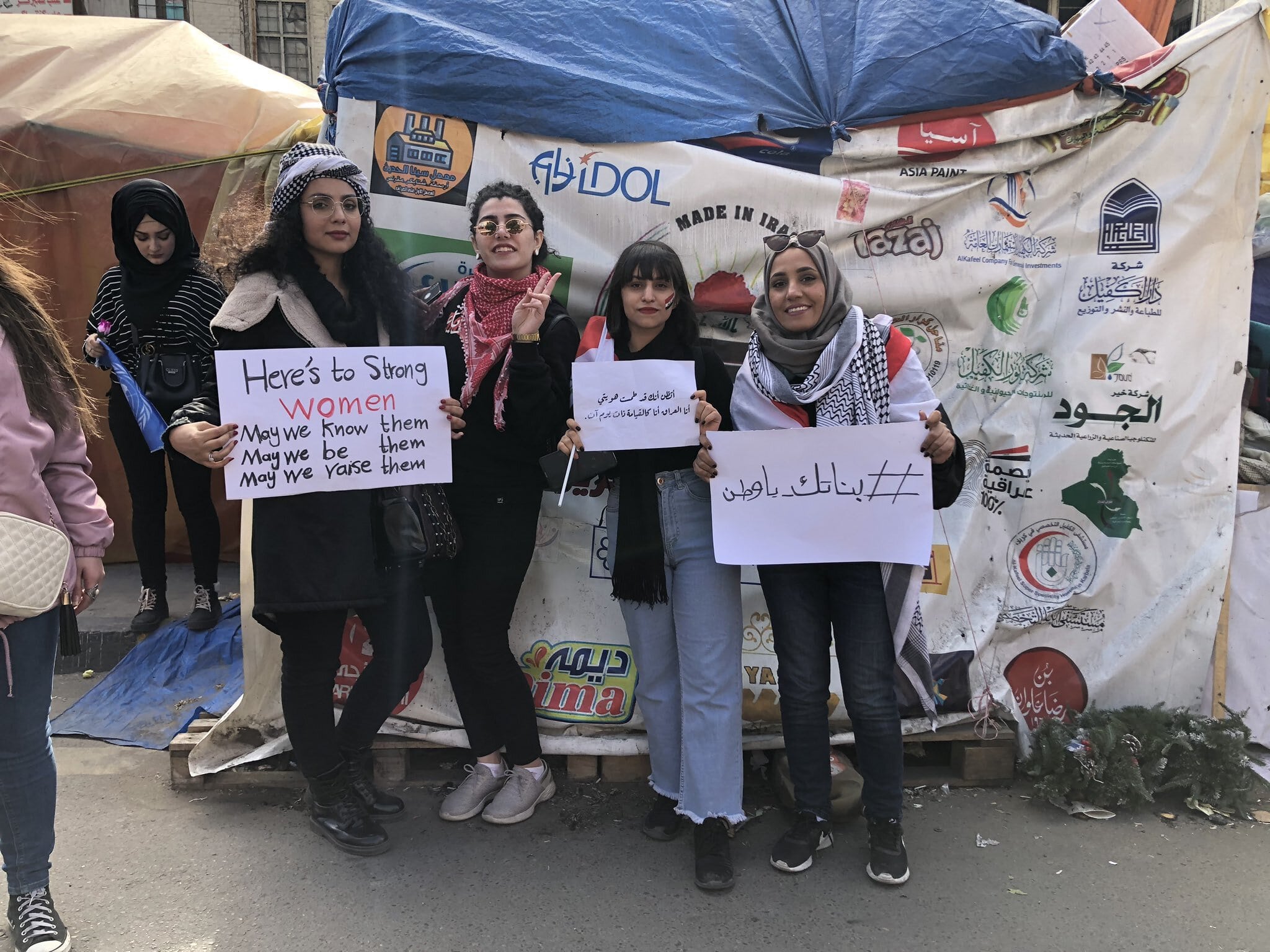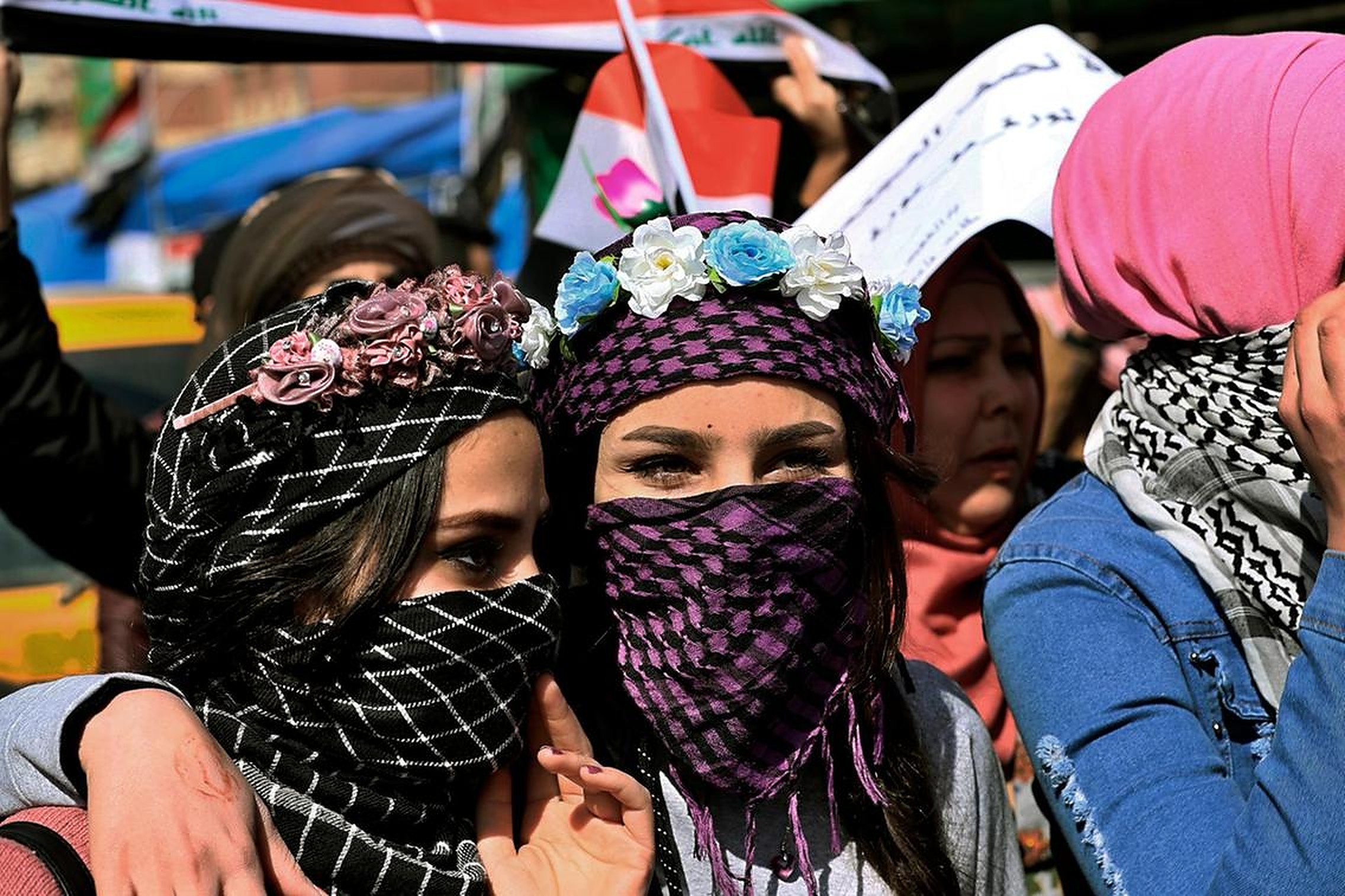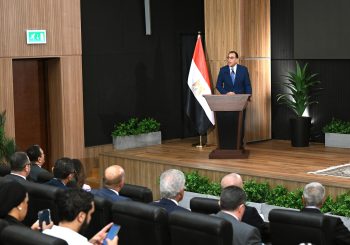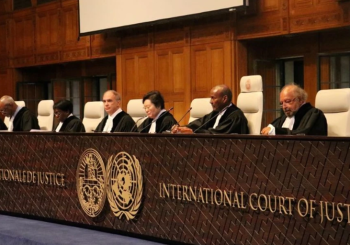
“In the history of Iraq, this is the first time women go out and participate in such large numbers in protests, ” Ban Layla, 30 year-old Iraqi protestor and anthropology graduate, tells Egyptian Streets, “We are here to mark our role and challenge the misogynistic culture that looks at us as though we are from a lower degree.”
Last Thursday, hundreds of Iraqi women took to the streets of central Baghdad and shared pictures on social media with the hashtag ‘#DaughtersOfTheNation’ (#بناتك_ياوطن). They carried Iraqi flags and poster signs defending their role in the revolution, chanting “your voice is not ‘awra (nakedness), your voice is the key to every revolution.”
"يا هو الكال صوتج عورة…..صوتج مفتاح لكل ثورة"
بهذه الأهازيج انطلقت المسيرة النسوية الأولى في العراق اليوم الخميس…مشاهد من نفق التحرير في بغداد #بناتك_يا_وطن pic.twitter.com/QQIZza2Obz— IrfaaSawtak ارفع صوتك (@IrfaaSawtak) February 13, 2020
However, shortly before the announcement of the women’s march on social media, Iraqi Shia cleric and military leader Muqtada Al-Sadr slammed it on Twitter, saying it symbolizes “nudity, promiscuity, drunkenness, immorality, and debauchery…” adding that “Iraq will never be Chicago.”
Al-Sadr is the son of one of Iraq’s most prominent Shia clerics, Mohamed al-Sadr. Following the US-led invasion in 2003, he rose in a power vacuum that allowed Iran to form an alliance with and establish influence in the country.
After falling out with protestors late January, which led to a heavy crackdown on the tents and sit-ins in Baghdad, young protestors are now eager to take the revolution on a more independent path, branding it as as a ‘young revolution’ that calls for a modern and democratic nation.
— مقتدى السيد محمد الصدر (@Mu_AlSadr) February 13, 2020
In an act of defiance, Iraqi women went on to march to protest against Al Sadr’s comments. “The same cleric who sent his thugs to kill protesters in Nasiriya, is being publicly challenged, ridiculed, and completely dismissed by women in a mass march,” journalist and editor of Irfaa Sawtak, Rasha Al Aqeedi, said.
“I am your brother, and you are my sister,” young male protestors said in support of the women’s march, as they danced and cheered while waving Iraq’s flag.
Dismissing Al Sadr’s remarks, the men formed a ring as the women marched, chanting “Revolution is my name, male silence is the real shame!” and “Freedom, revolution, feminism!”
“We did not believe it” Ban Layla says, “we did not expect this positive reaction. Young men took photos and greeted us, chanting ‘welcome, welcome!’ to us.”
https://twitter.com/BanLayla2/status/1228294862958735362
Since October 2019, Iraq has been gripped with anti-government protests to decry corruption and unemployment, which saw the death of over 500 people, 30,000 injured and the disappearance of many youth since then, according to a count compiled by AFP from security and medical sources
“Female students were assaulted and attacked by the militias of Al Sadr, and honor-based violence have become rampant because of the photos of girls in protests being shared online,” Ban Layla notes. “This is the first ever women’s march in Iraq. The government is not responding adequately to our demands and many were killed. We are here to support our youth that are in the streets protesting,” she adds.
As of now, the government made high-profile resignations of President Barham Salih and Prime Minister Adil Abdel Mahdi, yet armed militias continue to kill and kidnap protesters and students across the country.






Comment (1)
[…] #DaughtersOfTheNation: Voices From the First Ever Women’s March in Iraq […]